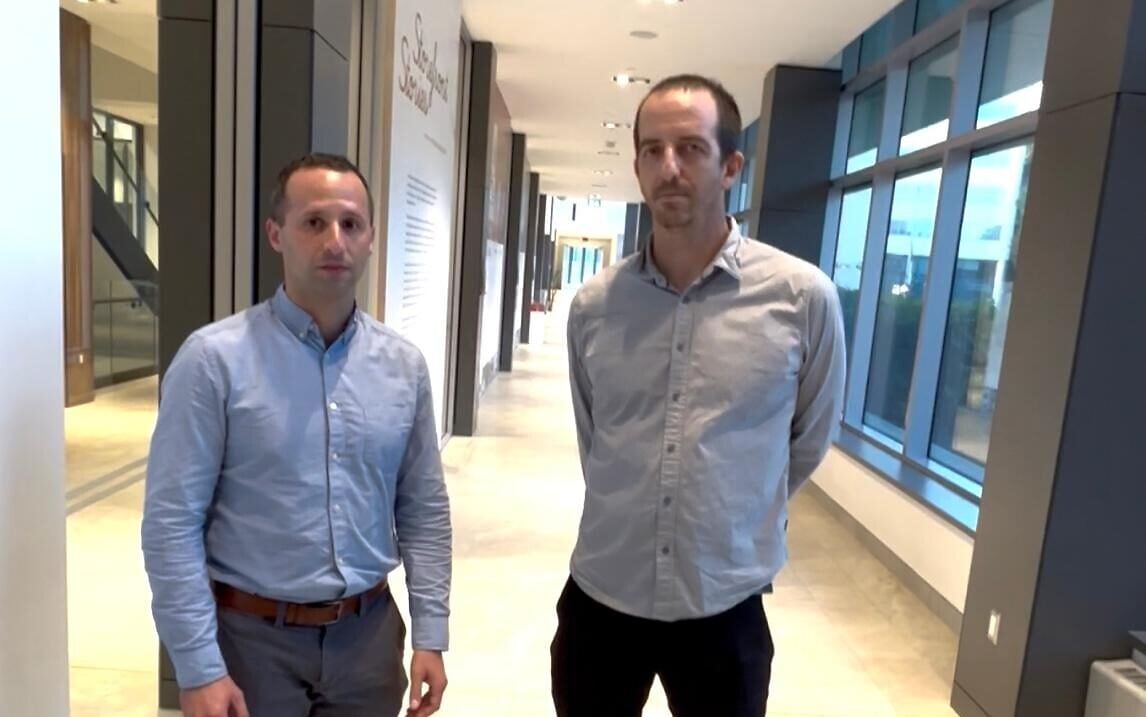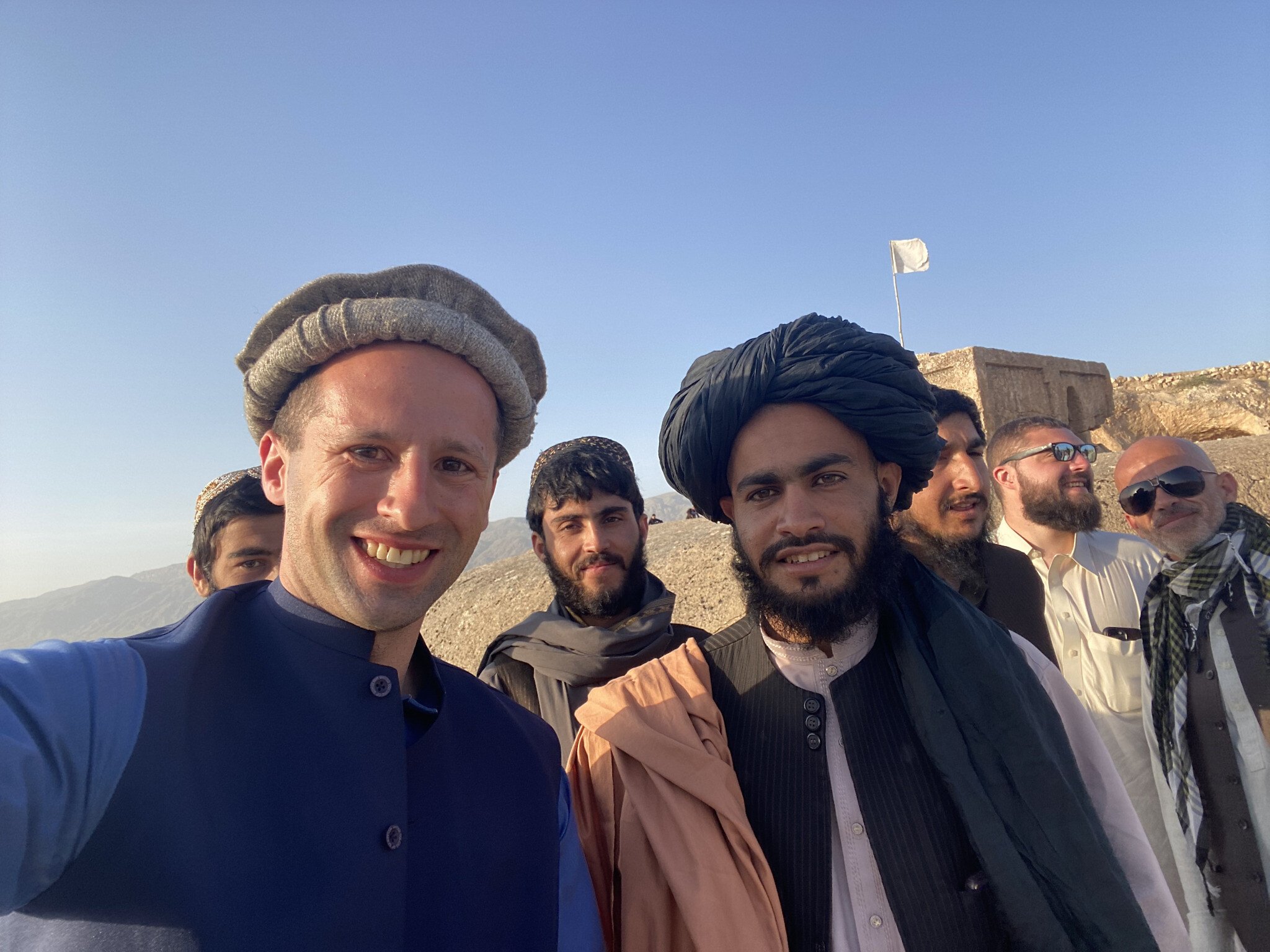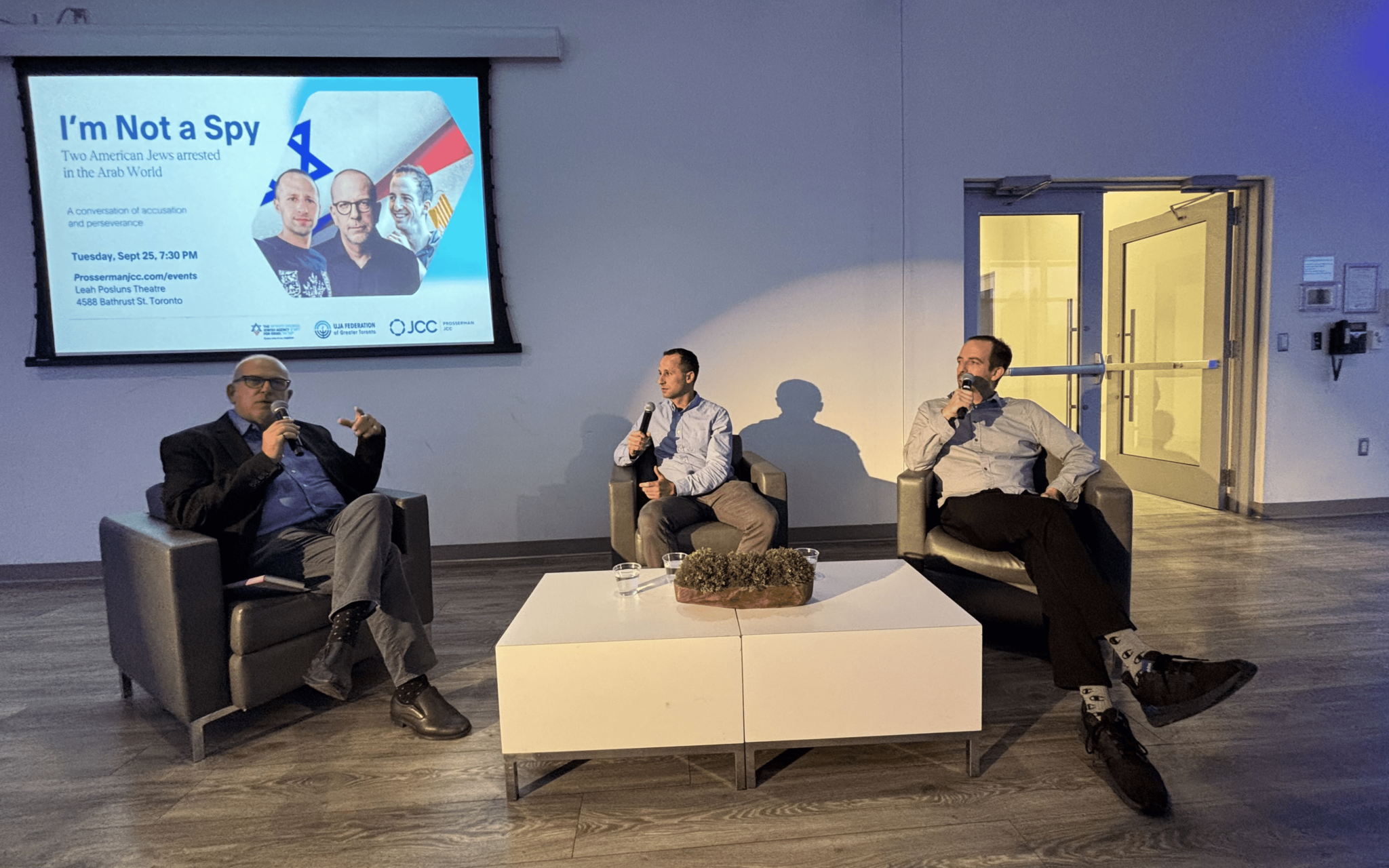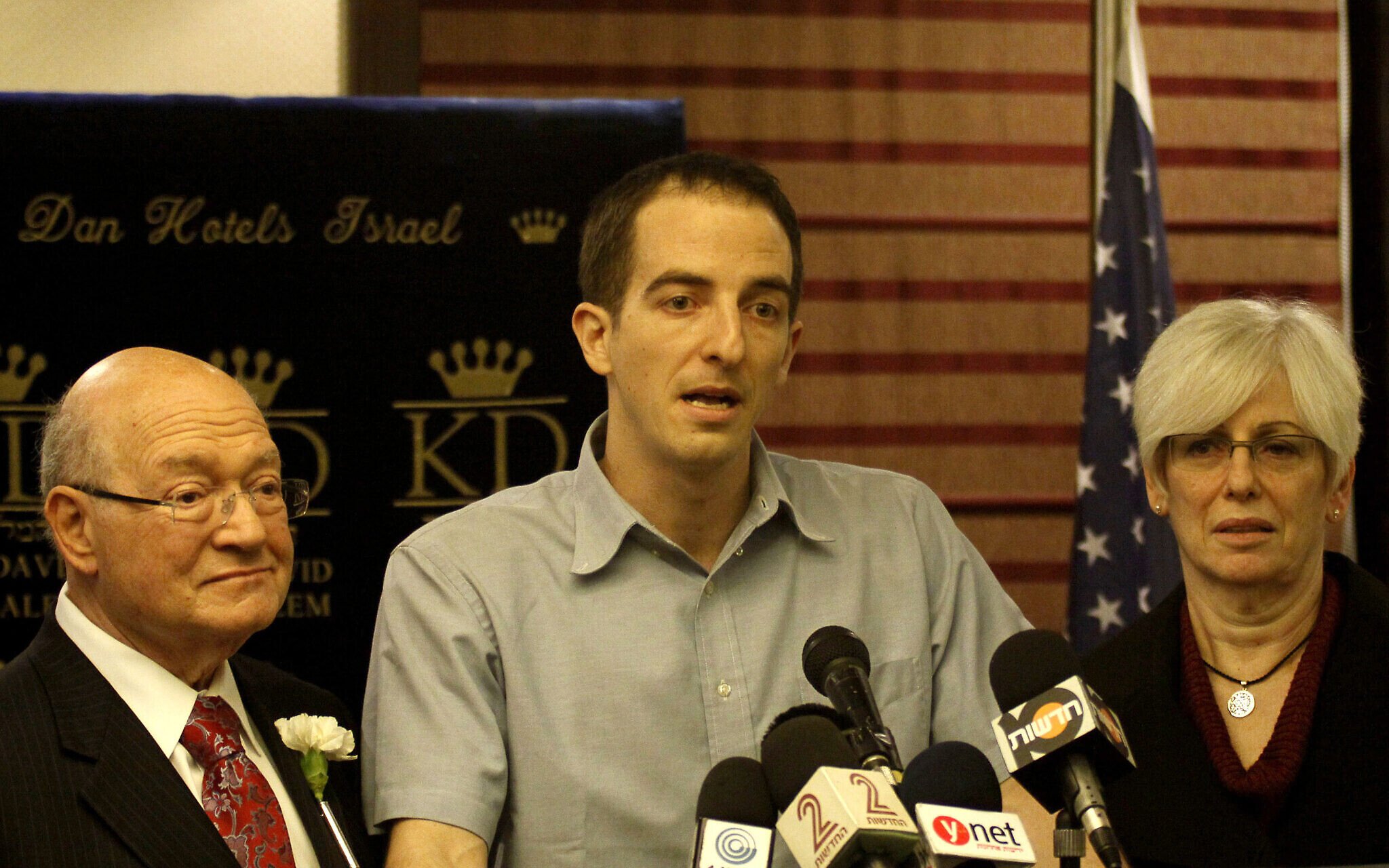


Israeli-American Dan Brotman handed his US passport to a Lebanese border control officer at the Masnaa border crossing with Syria in May, expecting an easy passage. Brotman began to feel nervous when the officer held his passport for a long time while examining his computer screen, though.
The officer took the passport, brought Brotman to a back office, where he was told he was “suspended.” He was stripped of his phone and other electronics and led to a filthy holding cell.
A window opened, and his group’s tour guide looked in, telling him the rest of his group was being told to leave, and he was being transferred to Beirut. A Lebanese soldier then shouted at Brotman that he was an “Israeli soldier,” Brotman said.
“From that moment on, I was completely on my own,” Brotman recently told The Times of Israel.
Brotman spent six days in captivity in Lebanon. He was deprived of food and information, subject to interrogations, and unable to brush his teeth or shower in the Middle Eastern heat. He slept in handcuffs that left deep welts on his wrists.
After his release, he was suffering from PTSD and sought out someone to talk to. He discovered Ilan Grapel, another Israeli-American who had been confined in Egypt more than a decade earlier. Brotman located Grapel’s contact information online and sent him an email.
“I said something along the lines of, ‘You’re not going to believe this. Something happened to me very similar to what happened to you and I just got out and I really need to talk to someone,'” Brotman said.
The two started speaking on the phone, forging a bond over their shared experience.
“The first thing, I counseled him to be ready,” Grapel said. “Just to be able to explain your story and explain it rationally.”
The Times of Israel spoke to Brotman and Grapel via Zoom before their first in-person meeting in Toronto, where they spoke at a local Jewish community center about their captivities.
Brotman, 38, grew up in Massachusetts and moved to Israel at age 18. He stayed for three years, serving in the IDF’s Education Corps and receiving Israeli citizenship. He then moved to South Africa for 11 years, where he worked for Jewish and Israel-related groups and co-founded an educational travel company.
He has traveled extensively around the world, including to countries hostile to Israel, using his American passport, driven by a desire to see and understand locations that are generally off-limits, such as Iran, Afghanistan and North Korea.
Grapel, also an Israeli-American, from New York, is another world traveler who was detained in Egypt in 2011 when he was 27. The Egyptians accused Grapel of espionage, without evidence, a claim Israel denied. Israel released 25 Egyptians from Israeli prisons, mostly smugglers, to secure Grapel’s release. Grapel had been in Egypt volunteering with a refugee agency and was held for nearly five months.
After receiving the call from Brotman, Grapel advised him to be prepared for a “negative reaction from the Israeli public,” who may have felt that the two travelers put themselves in harm’s way to the detriment of Israeli interests. Grapel said he told Brotman he needed to “just explain what we were doing in these places.”
“Something that was very hard early on was that I got some negative reactions from people, basically saying, ‘Your story doesn’t deserve to be told. You asked for it.’ Victim blaming, essentially. ‘You were reckless, irresponsible,’” Brotman said.
Grapel “prepared me for any negative reactions I would get, either in the press or from friends or even just acquaintances,” Brotman said.
Grapel, 42, also told Brotman to take an optimistic view, focusing on the fact that they could have been imprisoned for much longer.
“The transition from being in, to looking at what could have been, in both of our cases, long-term imprisonment, to all of a sudden finding your freedom and being able to appreciate it and acclimate back into the real world,” Grapel said.
The Times of Israel is relying on Brotman’s account for details of his captivity, including a diary he kept while imprisoned, unbeknownst to his captors.
The US State Department confirmed that Brotman was detained in Lebanon in May. The US embassy in Beirut said it had “no further information to provide,” and the Lebanese embassy in the US did not respond to a request for comment.
“We take seriously our commitment to assist US citizens abroad and provided consular assistance,” a State Department spokesperson told The Times of Israel. “The United States takes seriously all allegations of the mistreatment of US citizens in prisons and detention centers overseas. ”
While he was captive, Brotman said Lebanese investigators interrogated him about his military experience and told him Israel was a terrorist state.
Brotman was detained in Lebanon after he crossed into the country following a visit to Syria. He had been on an eight-day tour in Syria with an international group of mainly Americans and Europeans.
He had been in Lebanon twice before, and said that during his previous visits, he met civilians who “were not anti-Israel.”
“They all said, ‘We want peace with Israel.’ They had very warm feelings, actually, towards Israel. For me, it was really shocking being held by the government and them telling me that I come from a terrorist state,” he said.
In his diary, Brotman wrote that he was shuttled around different holding cells, one of which had dried feces smeared on the floor and no natural light. Another cell was “dungeon-like,” all concrete and cold, with no blanket. He wrote that at one point, he could hear a man screaming as the guards fired blank gunshots at him, and he heard the guards slapping another captive. One of his cells had a television and he watched footage of Hamas hostage Edan Alexander being released and Tom and Jerry cartoons.
The two travelers’ experiences were different in some ways, and similar in others. Grapel’s case made international news; he received support from Israeli and US elected officials, and he was confined for far longer than Brotman, whose captivity has received scant attention and no public backing from elected representatives. Grapel was released as part of a prisoner swap, while Brotman is still unsure why he was let go.
Both Brotman and Grapel said the most difficult aspect of their detention was the isolation. Grapel’s “best two weeks” were at the beginning, when interrogations allowed him to converse with his captors, drink tea and coffee, and get information from prosecutors.
“But then I had three and a half months, four months of no conversation or sparse conversation. That’s definitely the worst part,” he said.
Brotman said that, after he was detained, he didn’t know if anyone knew about his condition.
“It was just not knowing who knew on the outside, not knowing if people were fighting for me,” he said.
He added that his captors repeatedly lied to him about his release, apparently to keep him calm.
“They just make shit up,” he said. “‘You’re on a plane tonight.’ Then nighttime comes, ‘Oh, no, you’re not leaving tonight.’ Constantly not being able to believe anyone, not having a lawyer you can trust, and just having people lie to you every day.”
Grapel also advised that therapy wasn’t helpful for him, but that telling his story was cathartic.
“I just explained that finding people who were willing to listen might be helpful,” Grapel said.
Grapel said the effects of his captivity have faded in the 14 years since he was released, but Brotman still experiences flashbacks, he said.
“I think about what happened to me every day. Sometimes it’s in the middle of the night,” he said.
Brotman said he has received little support from the US government, has received no information since he was released, and hasn’t heard from the Israeli government. Lebanese officials threatened him against speaking publicly, he said.
He is seeking information about what happened behind the scenes during his detention, why he was detained, why he received little support, and why he was released. With the help of the Lawfare Project, a US Jewish legal advocacy group, he has filed a complaint with the United Nations Working Group on Arbitrary Detention. The group is supposed to ask Lebanon for clarification about the incident, and Brotman is awaiting a response.
Brotman believes an informant told the Lebanese government about his background before he reentered the country from Syria. He is listed on a website called “Find IDF Soldiers” that targets IDF veterans in Canada. Archived web pages show that Brotman’s entry appeared on the website in May, around the time he was detained.
While he was in captivity, he saw a document on an interrogator’s desk printed in both English and Arabic, he said. He believes that, if it had been an internal Lebanese document, it would have only been in Arabic. Brotman documents his travels on social media, but hadn’t posted about his trip to Lebanon and Syria, he said.
“I think the US government knows what happened,” he said.
He also hopes bringing light to his case will expand protections for American Jews who have Israeli citizenship in places like Lebanon.
Brotman now lives in Montreal, where he works at a company that helps individuals acquire second passports — a fitting position for Brotman, who, in addition to his US and Israeli citizenship, has a South African passport and is in the process of acquiring Canadian citizenship.
Grapel teaches at a Jewish school in Orlando, Florida.
Brotman said the pair wants to tell their story to a US audience and has started contacting Jewish and non-Jewish organizations in the US about holding further events together.
After being released, both Brotman and Grapel resumed their world travels, although they have circumscribed where they go.
Prime Minister Benjamin Netanyahu advised Grapel against traveling in the Arab world, but his “wanderlust pulled me into South America,” he said. He learned Spanish and lived in Colombia and Panama.
“For now, I’m going to stick to places where we’re permitted,” he said.
Brotman recently visited his 100th country, Peru, and plans to visit another six countries in December. He will avoid any country that partakes in “hostage diplomacy,” such as Venezuela and Russia, and Arab countries that bar Israelis.
“I continue to travel the world,” he said.





